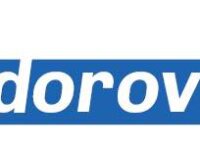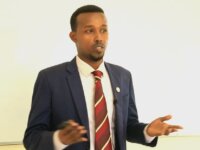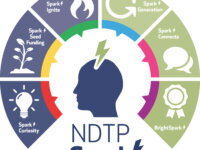The Government of Finland has launched an “Experimentation Accelerator” as a network-based self-organising platform for innovative public servants to develop cross-sectoral solutions through co-creation, mutual learning and sparring from inspiring innovation champions. This year there are 17 teams involved in the process consisting of 4 co-working sessions, with experiments ranging from Lean Start-up, deepened service thinking in and across the participating organisations to AI and strategic…
Innovation Tag: Human Resources
Case Study
The Public Private Collabroation model, eZdorovya, and the transformation of the healthcare system…

17 million of people joined the eHealth in less than 6 months, which is every third Ukrainian. Such growth determined by the Public Power Corporation model of organizational process of the eHealth implementation in Ukraine. It was developed by the state-owned enterprise eZdorovya in cooperation with the government, business, IT and civil society. It enables to create a national highly secure eHealth system fast, effectively and transparently. Today, the eHealth in Ukraine is one of the key…
This programme was developed to address critical strategic challenges in the Criminal Justice Sector in Ireland so as to enhance sectoral leadership and public value. A cross agency collaborative learning and implementation methodology was used. High profile reviews of deep seated cultural and procedural challenges have inspired this programme. The IPA and agencies across the criminal justice system have taken an innovative approach to collaboration, learning and implementation. .
The Free Education platform is an open and collaborative learning space that seeks to awake the interest of Brazilian youth in their personal and professional development. It is a free, open platform, and its practical, interactive content is especially directed at lower income youths (between the ages of 16-24), that have not completed high school and do not have the necessary skills to find employment or interest in continuing their studies through formal education.
“Future Ready” is a project which develops young women and men computer science and entrepreneurship skills. Future Ready enables youth to develop technology solutions that addresses societal challenges and contribute to the growth of the national economy. Overall, the project bridges the gap between public education and job market needs and creating entrepreneurial opportunities for them.
Service shop, developed by the municipality of Larvik:
- is an online booking and calendar solution that allows service recipients to determine the time of receiving municipal services based on the recipients own calender and wishes
- is a secure solution that takes care of the privacy of the service recipients
- makes it easier for the employees to plan their days, the service order automatically generates employee workflow.
Illegal and unethical employment practices should not be tolerated where public money is being spent. The Code of Practice on Ethical Employment in Supply Chains calls on all organisations receiving public money directly or via contracts to ensure legal and ethical employment for workers in supply chains. The Code’s commitments are designed to combat modern slavery and exploitative practices and to promote responsible employment to improve workers’ lives in Wales and across the world.
Over a third of U.S. federal employees are eligible to retire in the next five years, yet only 6% of employees are under 30—a pressing issue given the rate of innovation. Piloted as an effort between agencies and a student-led nonprofit, the Civic Digital Fellowship recruits the next generation of technologists—students and recent grads—pairing them with in-need agencies. It has scaled to six agencies, and is an attractive on-ramp for technical students into public service.
National Doctors Training and Planning has commenced The Spark Innovation Program, designed to empower junior doctors to innovate and make positive changes within the public health system.
In a traditionally bureaucratic environment where innovation is not encouraged, the Spark program not only enables innovation but actively encourages it. Through this empowerment of initiative, creativity and expertise, retention of staff is also addressed and morale increased.
The Flexi-Team helps advance top priority political projects, which could not have been implemented with the currently available staff. The team supports all divisions of the ministry that have temporary staff shortages due to absences or unfilled positions, or due to short-term projects. Furthermore, the Flexi-Team promotes a more flexible work environment in the ministry e.g. by establishing the use of modern knowledge management methods and by offering support in creative design processes.




